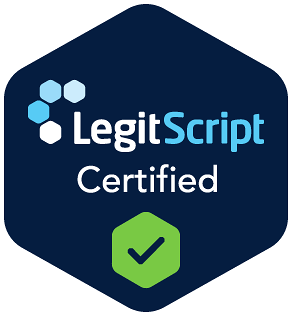Maybe you’ve caught yourself reaching for that third glass of wine after dinner. Again. Or perhaps you’ve noticed your friend scrolling through social media for hours, even when they’re supposed to be working. Your mind starts questioning: is this just a harmless routine that got a little out of hand, or could it be something more serious?
The line between a bad habit and addiction isn’t always clear, and that uncertainty can feel overwhelming. Understanding the difference isn’t just about labels—it’s about recognizing when you or someone you care about might need support.

The Science Behind What Drives Our Behaviors
Both habits and addictions involve the same reward circuit, but they affect it in dramatically different ways. When you do something pleasurable, your brain releases dopamine. This dopamine signal causes changes in neural connectivity that make it easier to repeat the activity again and again without thinking about it, leading to the formation of habits, according to research from the National Institute on Drug Abuse (NIDA).
But substances and highly addictive behaviors produce much larger surges of dopamine, powerfully reinforcing the connection between the behavior, the resulting pleasure, and all the external cues linked to the experience. This fundamental difference in brain chemistry helps explain why some behaviors become so much harder to control than others.
What Makes a Habit Just a Habit?
Habits are your brain’s way of making life more efficient. Research shows it takes an average of 66 days for a new habit to form, but habits can be broken with focused effort and replacement with new routines. Think about your morning coffee routine or automatically checking your phone when you wake up.
The key characteristic of habits is that you maintain control. Even if it takes effort, you can choose to change the behavior when you really want to. You might be annoyed with yourself for biting your nails during stressful meetings, but you can still stop when you become aware of it. The behavior serves some purpose in your life, and it doesn’t typically interfere with your responsibilities or relationships in significant ways.
When Behavior Crosses Into Addiction Territory
Addiction is defined as a chronic, relapsing disorder characterized by compulsive drug seeking and use despite adverse consequences, according to NIDA. But addiction doesn’t just apply to substances—it can involve behaviors like gambling, gaming, or shopping that become compulsive and harmful.
The most telling difference is loss of control. With addiction, the craving becomes uncontrollable, often continuing the behavior even when there are negative consequences. Research reveals that about 9% of Americans over age 12 struggle with a substance use disorder, but behavioral addictions affect millions more. Among the 48.5 million people aged 12 or older who had a SUD in 2023, only 15.6 percent (7.1 million people) received treatment while 85.4 percent (41.1 million people) did not receive substance use treatment, according to the latest SAMHSA data.
The Four Critical Questions That Reveal the Truth
When you’re trying to understand whether you’re dealing with a habit or something more serious, these questions can provide clarity:
Is the behavior having a negative impact on your life? Addiction typically interferes with work, relationships, health, or other important areas. Maybe you’re missing deadlines because you can’t stop playing video games, or your drinking is causing arguments with your spouse.
Do you put yourself in risky situations? Someone with an addiction might drive under the influence, lie to cover up their behavior, or spend money they don’t have.
Do you experience withdrawal when you stop? This could include physical symptoms like headaches or emotional symptoms like irritability, depression, or intense cravings when you try to stop.
Have you repeatedly tried to stop and failed? This cycle of attempting to stop and failing is a hallmark of addiction, distinguishing it from habits that can be changed with consistent effort.
Why Traditional Willpower Isn’t Enough
If you’ve been struggling to change a behavior despite your best efforts, you’re not lacking in character or strength. Brain imaging studies of people with addiction show physical changes in areas of the brain that are critical to judgment, decision-making, learning and memory, and behavior control, according to NIDA research.
The initial decision to engage in potentially addictive behaviors is typically voluntary. But with continued use, a person’s ability to exert self-control can become seriously impaired. This impairment in self-control is the hallmark of addiction.
The Path Forward: Hope and Practical Steps
Whether you’re dealing with a stubborn habit or recognizing signs of addiction, change is possible. The approach just needs to match what you’re actually facing.
For habits, focus on identifying triggers and replacing the behavior with something healthier. Change your environment when possible, and be patient as new neural pathways form. Building positive habits while working to eliminate negative ones tends to be more successful than just trying to stop something.
If you recognize signs of addiction, professional support makes a significant difference. Modern addiction treatment combines evidence-based approaches that address both the physical and psychological aspects of addiction. Medication-Assisted Treatment for opioids, combining medications with counseling, produces success rates of up to 50% in maintaining long-term recovery, while therapeutic approaches like cognitive-behavioral therapy show strong evidence of effectiveness for various addictions.
At North Atlanta Behavioral Health, we understand that taking the first step toward getting help can feel overwhelming. Our team specializes in helping people distinguish between different types of behavioral challenges and developing personalized treatment plans. We know that every person’s situation is unique, and we’re committed to meeting you where you are without judgment.
Remember that seeking help early often leads to better outcomes. You don’t have to wait until the problem becomes severe. Recovery is possible at any stage, and the sooner you get support, the more options you typically have available.
Frequently Asked Questions
How long does it take to break a bad habit versus overcoming an addiction? Breaking a habit typically takes 66 days on average with consistent effort. Overcoming addiction usually requires months to years of ongoing support, including potential medical treatment, therapy, and lifestyle changes, as the brain changes involved in addiction take time to heal.
Can someone have both habits and addictions at the same time? Absolutely. You might have relatively harmless habits while also struggling with an addiction. It’s important to address each behavior appropriately rather than assuming they all require the same level of intervention.
What should I do if I think a family member has crossed from bad habits into addiction? Express concerns using specific examples rather than labels. Offer support in finding professional help, but understand that you can’t force someone to change. Setting healthy boundaries for yourself is equally important.
Are behavioral addictions like gaming or shopping as serious as substance addictions? Yes, behavioral addictions can be just as serious as substance addictions. They involve similar brain changes and can cause significant disruption to relationships, work, and financial stability.
When should someone seek professional help versus trying to handle it themselves? If you’ve tried multiple times to change the behavior unsuccessfully, if it’s causing problems in important life areas, or if you experience withdrawal symptoms when trying to stop, it’s time to seek professional help.
Understanding the difference between habits and addiction isn’t about judgment—it’s about getting the right kind of help for your specific situation. Whether you’re dealing with a pattern you’d like to change or recognizing signs of addiction, support is available.
At North Atlanta Behavioral Health, we’re here to help you navigate these challenges with compassion and expertise. Our comprehensive treatment programs address both substance use disorders and behavioral addictions, providing the tools and support you need for lasting change.
Contact Information:
- Phone: 770-230-5699
- Email: info@northatlantabh.com
- Address: 365 Market Place, Roswell, GA 30075
Available 24/7 for patient care and admissions – call us to get the support you need today.












